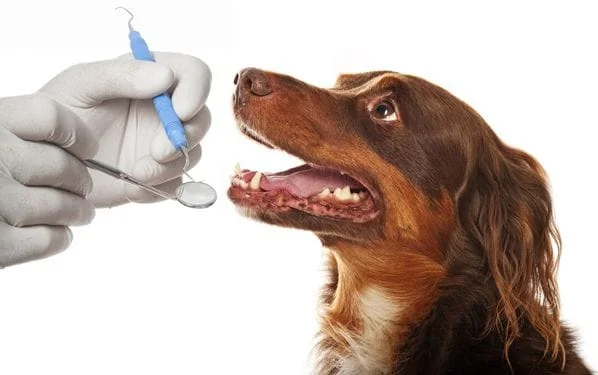The Importance of Veterinary Dentistry
Though sometimes overlooked, dental examinations are crucial to your pet’s overall health. An infection in the mouth can seed bacteria to other organs, and some ulcers, discolorations and growths can be a signal of a bigger problem than you may expect. By the time your pet is three years old, they may already have signs of dental disease as notated by the AVMA (American Veterinary Medical Association). They recommend seeing your Vet at least once a year to have their dental health evaluated.
What Does a Dental Examination Look Like?
Usually at the time of your pet’s annual exam, but potentially sooner if you have concerns, the Vet will perform a dental examination. This involves opening your pet’s mouth and checking for some specific things. They will check for plaque and tartar, which can cause infection beneath the gumline. They will also check the color of the gums, abnormal growths or sores, gingivitis, fractures of the teeth, the jaw anatomy, and cavities. Based on their findings, they will assign your pet a dental grade 1-4, 1 having very minimal issues, and 4 being a severe level of infection that needs immediate attention. They may recommend things like brushing and water additives, but if the infection or issues are severe enough they’ll recommend surgical attention for your pet’s dental disease.
Signs of Dental Disease in Cats and Dogs
- Broken or loose teeth
- Discomfort while eating or showing interest in food, but having hesitancy about actually eating it
- Bad breath or a foul odor coming from the mouth
- Excessive drooling
- Red or bleeding gums
- Staining on the teeth, including the presence of tartar, which is usually a dark brown and adheres to the teeth
- Swollen or inflamed gums
- Unplanned weight loss
- Swelling of the muzzle
- Excessively rubbing paws against muzzle or against objects
My Pet Has Dental Disease, What Can I Do?
Thankfully, dental disease is very treatable for most pets with dental cleanings and surgery. Dental x-rays, cleaning and extractions do require full anesthesia at Windsor Park Vet Clinic. Companies or clinics that do not use full anesthesia are not solving the root of the problem, prolonging discomfort and potentially creating complications for later. They are likely only brushing the teeth, which will not remove tartar and will not address infection. Our dental surgeries are thorough, using dental scalers to remove built up tartar, and protecting tooth enamel with prophylaxis paste afterwards. We also take full mouth x-rays, so we can see all areas of infection below the gumline and only remove necessary teeth. Your pet will be fine and able to eat after extractions, so don't worry! If anything, they'll feel much happier without problem teeth as a constant source of pain.
Our team takes pride in the dental work we do, with an experienced staff and the goal to make sure your pet can live comfortably after dental infection. If we think your pet needs dental work, we will tell you at the time of the exam. You can then work with our receptionists to schedule a time that works for you to have your pet’s procedure performed.
What About Puppies and Kittens?
Unless they have a broken tooth, puppies and kittens generally have exceptional dental health. With that being said, there’s always the possibility that they may have retained deciduous teeth, also known as baby teeth. By the time your pet is 6 months old, they should have lost all of their deciduous teeth. If they haven’t, they may need to be surgically removed.
If you have questions or concerns about your pet’s dental health, please contact us at your earliest convenience to schedule an appointment.



